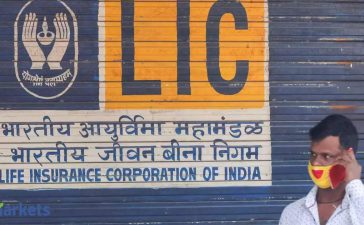
Teamsters representing skilled trades workers at 22 Cal State University campuses plan to hold an unfair labor practice strike Tuesday, Nov. 14, claiming their wages fall far below that of UC employees who do the same work. Employees are seen here at a September rally. (Photo courtesy of Teamsters Local 2010)
Skilled trades workers at 22 Cal State University campuses plan to hold an unfair labor practice strike Tuesday, Nov. 14, claiming their wages fall far below that of UC employees who do the same work.
The announcement follows a vote by 94% of union members last month to authorize a walkout.
Teamsters Local 2010, which represents 1,100 workers in the Cal State system, said the university has exhibited bad faith bargaining amid stalled labor negotiations.
Also see: California State University faculty vote to authorize strike over pay and class sizes
Jason Rabinowitz, the union’s secretary-treasurer, said CSU management has interfered with its members’ rights to engage in union activity by changing work rules, removing Teamster signs and materials from break rooms and threatening retaliation for participating in a strike.
“Our members have had enough and are taking to the picket line,” he said. “We don’t want to strike, but they are not bargaining with us.”
Locally, the walkout will affect CSU campuses in Northridge, Los Angeles, Long Beach, Pomona, Camarillo and San Bernardino.
Also see: Thousands of striking hotel workers march through LA
In a statement issued Monday, CSU said it doesn’t believe the Teamsters’ planned strike is lawful.
“Should a strike take place, all CSU universities will remain open and have contingency plans in place to maintain full university operations with as minimal disruption as possible for students, faculty, staff, and visitors to our campuses,” officials said.
The workers — including plumbers, electricians, HVAC technicians, auto mechanics and locksmiths, among others — perform myriad jobs across the university system related to school facilities such as student housing, classrooms and sports venues.
More on labor strikes: How Kaiser unions strikes led to ‘historic’ deal
Their labor contract expired June 30, and CSU management has declined to participate in further negotiations, Rabinowitz said.
“A state mediator was brought in on Oct. 31 to help resolve the dispute, but nothing came of that,” he said. “They are not bargaining in good faith.”
The Teamsters are demanding a fair contract that addresses the university system’s “broken salary structure.” They say CSU pay lags behind that of comparable UC workers by an average of 23.6% when comparing UC and CSU campuses in the same county.
Alex Vermie, a research analyst with Teamsters Local 2010, said CSU electricians with 23 or more years of experience in the Los Angeles area are earning 13.5% to 20.8% less than their UCLA counterparts.
The average starting rate for LA-area CSU electricians in May 2023 was $37.37, Vermie said, while the flat starting wage for UCLA electricians was $46.46.
“Workers have been denied annual step increases in pay for the past 28 years,” Rabinowitz said. “We have employees who have been here for decades who are still at the bottom of their pay range. They’re falling further and further behind.”
CSU said it has offered a 15% compensation pool for a three-year period to Teamsters workers.
“The CSU remains committed to the collective bargaining process and reaching a negotiated agreement for increased compensation with the Teamsters, as we have done with five of our other employee unions in recent weeks,” CSU management said.
The strike follows the recent appointment of CSU Chancellor Dr. Mildred Garcia. Union officials say she got a 27% salary increase over her predecessor for a $795,000 base salary and a total compensation package worth nearly $1 million.
The Teamsters are supported in their strike by the CSU Labor Coalition representing roughly 60,000 CSU workers. Members include the California Faculty Association, CSUEU/SEIU 2579, Academic Professionals of California, UAW Local 4123 and the United Association of Physicians and Dentists.
“These are employees who have been through the pandemic, earthquakes and fires,” Rabinowitz said. “When toilets are clogged or someone is locked out of their room, these are the workers who take care of them and provide those services.”






